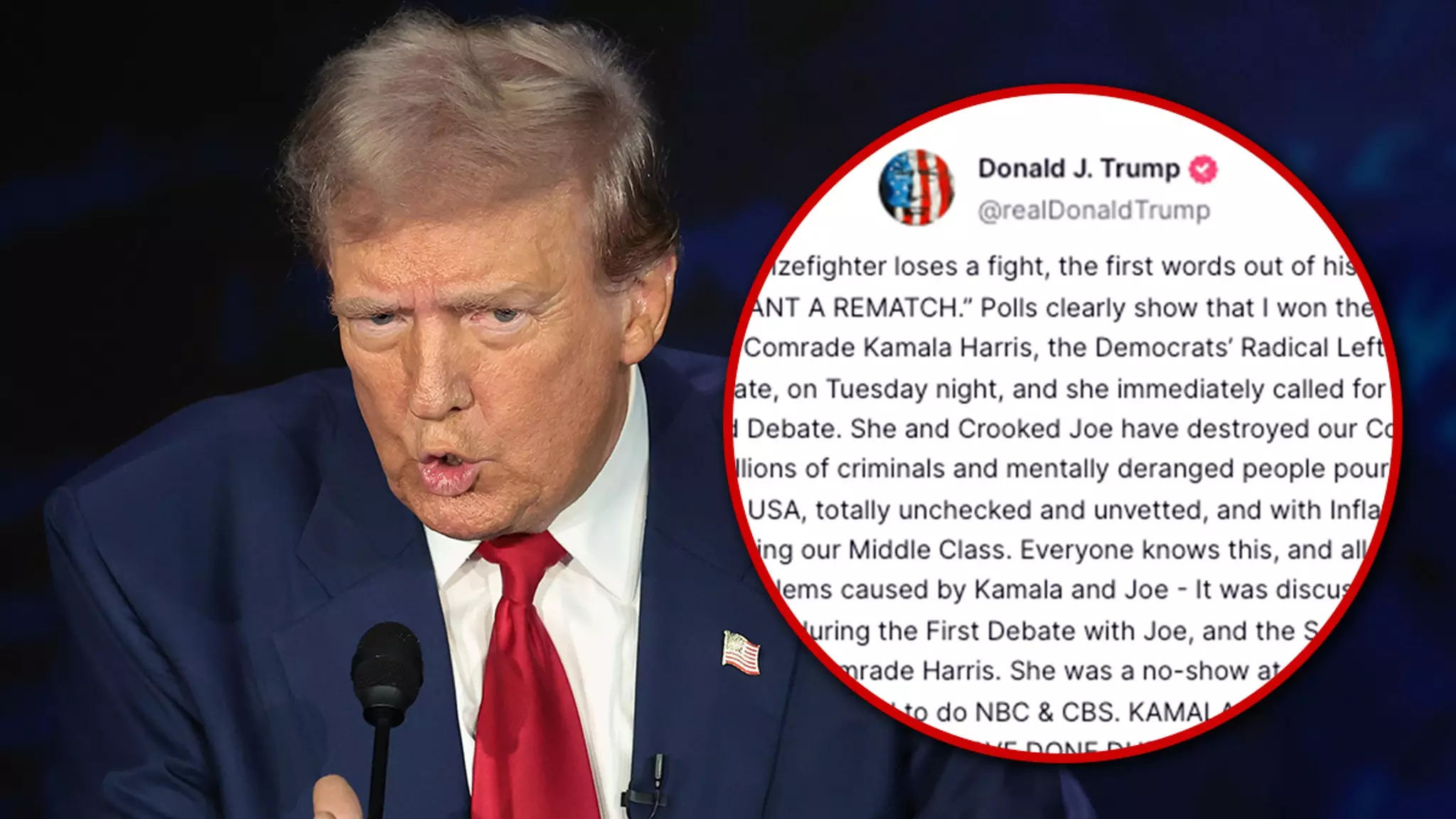In the ever-unraveling tapestry of American politics, the prospect of debates often stirs public interest and ignites partisan fervor. Recently, the former President Donald Trump made waves by declaring that he will not participate in a third debate against Vice President Kamala Harris. He expressed his sentiments through a post on his social media platform, Truth Social, framing his decision as an affirmation of his earlier victory. This refusal to engage further in the debate arena raises questions about the electoral tactics that both candidates might employ as they navigate the complex landscape of public opinion and media portrayal.
Trump’s Contentious Claim of Victory
Trump’s assertion of being the “clear winner” against Harris invokes skepticism and reflects the larger strategy employed by the Trump campaign: to project confidence and control irrespective of the underlying circumstances. According to him, polls indicate a favorable outcome for him in previous encounters. However, the reliability and interpretation of such polls often vary, rendering Trump’s claims both subjective and polarizing. His portrayal of Harris as a defeated challenger clamoring for a rematch further embodies the combative tone he has established throughout his political career.
In his critique, Trump shifted the focus from electoral debates to pressing national issues, specifically criticizing Harris for purportedly evading critical conversations about immigration and economic policy. By characterizing her as someone who ought to concentrate on healing the societal rifts exacerbated during the Biden administration, Trump seeks to reposition himself as a viable alternative — a leader ready to tackle the pressing problems facing the American populace. This strategic pivot highlights the increasing pressure on politicians, especially ahead of crucial elections, to appear concerned with tangible policy issues rather than merely engaging in verbal sparring.
The recent debate featuring Trump and Harris was marked by moments that gained traction online, illustrating the power of media in shaping public perception. From hesitant handshakes to outlandish claims, these instances resonate with party loyalists and skeptics alike, serving to solidify or undermine the candidates’ images within their respective spheres of influence. Additionally, the mention of endorsements, such as Kamala Harris receiving Taylor Swift’s backing, showcases how cultural connections can play a significant role in amplifying a political candidate’s reach and appeal, transcending typical demographics.
With Trump’s emphatic statement that there will be no rematch looming on the horizon, the dynamics of the race shift once again. It raises intriguing questions about whether this decision signifies a strategic retreat or a confidence in his previous performances. As the election cycle continues, both Trump and Harris will undoubtedly recalibrate their strategies, perhaps subverting expectations about their engagement in the media and electoral debates. In the grand tapestry of American politics, every action carries weight, and the implications of a non-debate could reverberate throughout the race for the presidency.

